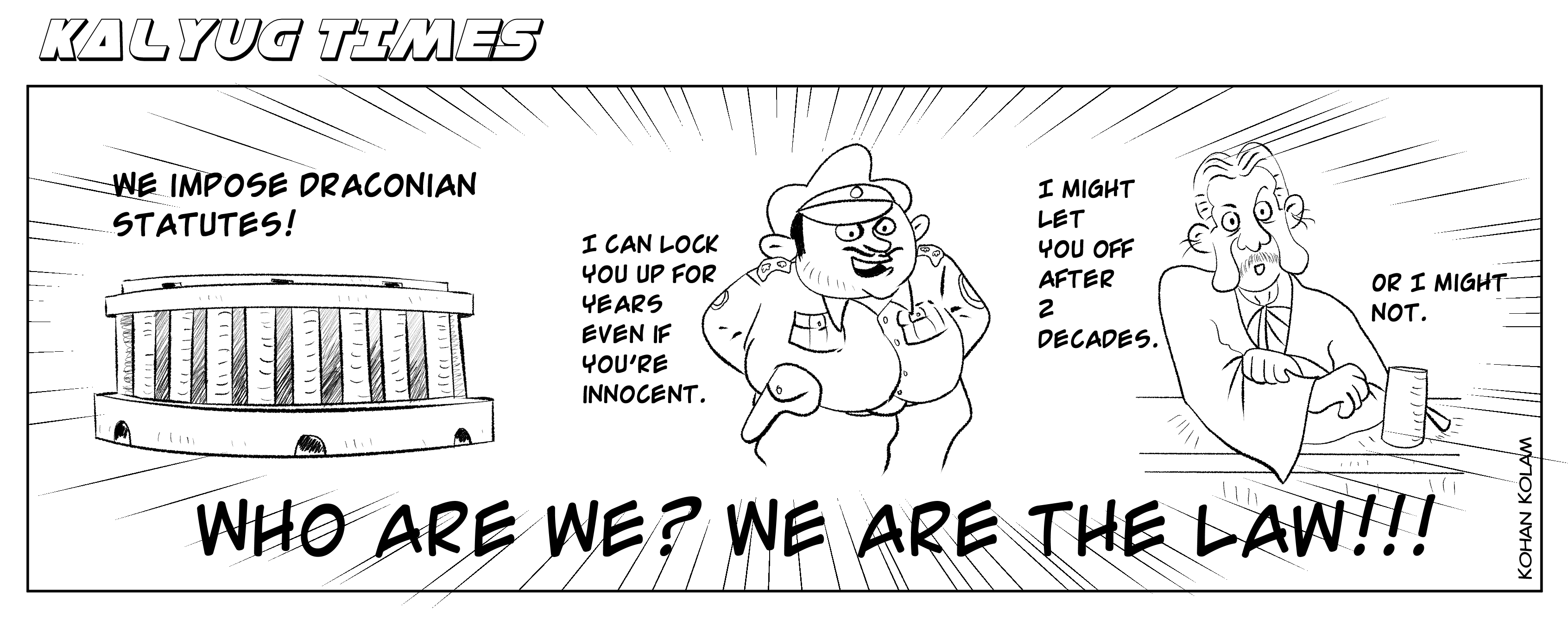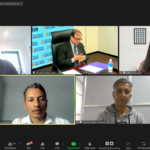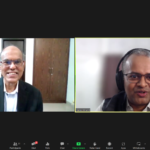Legal lawlessness
Authors note on usage: I have used ‘Law’ to refer to the abstract concept and ‘law’ to its concrete expression.
State laws vs the rule of Law
“..ultimately law is an instrument in the hands of the ruling class.” -Mieczyslaw Maneli, Professor of Law and Political Science.

Several people are picked up by police, charged with terrorism and thrown in jail for several months. After nearly two decades they are acquitted for lack of evidence.
A climate campaigner is accused of plotting against the state in an international conspiracy and arrested on the basis of an innocuous, publicly shared document that activists commonly use to organize.
Communities living for many generations on a piece of land, from before the current form of ruling system came into being, are declared trespassers by the newcomer state and are dispossessed at gunpoint, their orchards chopped down and homes demolished.
Cops who gunned down a young girl in their custody are cleared of wrongdoing as, according to the judge, there is no proof that she was not a terrorist.
A comedian is jailed for a joke he might have made but didn’t.
A person with a natural sense of fairness may wonder-just how are all these legal even? If she’s a bolder thinker she might even ask-if Law inflicts injustices, is it even Law or is it lawlessness “legally” enshrined?
For if Law is about justice, about facilitating living and collaborating in peace, it has gone terribly awry. And yet all these atrocities, and many more, are not only legal, our rulers tell us they are absolutely indispensable to indefinable higher imperatives such as the national interest, public good, sovereignty, security of the state, and many more.
Thus Law, a vehicle of peace and justice, has been perverted into a bulldozer of power that crushes rule of Law under its wheels daily.
The two ideas of Law are obviously contradictory, yet most of us cannot distinguish between them and we think of and call the two opposites by the same name. The conceptual havoc it has caused and the consequences have been tremendous.
The average person thinks of statutes-legislation and government mandates-as Law, and believes rule of Law means solemnly obeying the state. Law is whatever the government orders us to do-or not do. If a law does violence to a group of persons, is discriminatory or unfair, we may disagree, we may protest, but we believe it is Law of the land (cue trumpets) and we must follow it scrupulously till somehow our rulers are persuaded to change it.
The terrifying, unaccountable power this provides the ruling class is obvious and can be seen in the news every day. It turns us into obedient puppets in their grubby hands. But we assure ourselves that the government is not all unaccountable, there are laws that apply to the government too, that laws apply equally-in theory-to state leaders and officials. Of course, those laws were written by and are enforced by those same leaders and officials, provide many explicit exemptions and privileges for the ruling class, and rarely, if ever, do we see a state leader held to account in a meaningful way. But we naturally blank out these minor details. Theory is good enough for many of us, practice will catch up someday.
So, our rulers merrily carry on daily violating our rights, they make draconian laws, jail innocents without hearing for years, gaol us for criticizing them, for “hurting sentiments”, they muzzle our right to publish opinions, to even speak out against the silencing of speaking out. We can do little-because it’s all legal! And we have been taught to revere the legal as sacred.
Slavery was legal, sending Jews to death camps was legal, to help and hide them was a grave crime.
Law, which we supposed to be our protector, has rendered us defenseless against power.
Even in democracies better than this one, governments have discretionary powers of such vast scope that it is inevitable that politically powerful groups and individuals would tilt rules in their own favor and to the detriment of the common citizen. When an authoritarian minded person or party takes over the tilt could become a threat of capsizing.
“Modern states possess various agencies with the authority to investigate and punish wrongdoing by both public officials and private citizens. These include the judicial system, law enforcement bodies, and intelligence, tax, and regulatory agencies. In democracies, such institutions are designed to serve as neutral arbiters. For would-be authoritarians, therefore, judicial and law enforcement agencies pose both a challenge and an opportunity. If they remain independent, they might expose and punish government abuse. It is a referee’s job, after all, to prevent cheating. But if these agencies are controlled by loyalists, they could serve a would-be dictator’s aims, shielding the government from investigation and criminal prosecutions that could lead to its removal from power. The president may break the law, threaten citizens’ rights, and even violate the constitution without having to worry that such abuse will be investigated or censured. With the courts packed and law enforcement authorities brought to heel, governments can act with impunity.” -Steven Levitsky, ‘How Democracies Die’.
This must ring a very familiar bell to many Indians.
Isonomia-a most beautiful word
Equality of Law has little meaning if those with power can impose arbitrary diktats or where legislatures can make laws exacting unjust, unreasonable and cruel exertions. They cannot but spare themselves the cruelties they inflict on others, such is human nature. The common person is always subject to government law, the perennial and oft failed challenge is to subject government to the rule of Law.
The idea of rule of Law goes back to antiquity. Aristotle wrote that “It is more proper that law should govern than any one of the citizens” and Plato that “if law is the master of the government and the government is its slave, then the situation is full of promise and men enjoy all the blessings that the gods shower on a state.”
Isonomia is an ancient Greek word for equalities under Law. Herodotus in The Histories has a character say that “it is the most beautiful of all names” for a political order.
“Against tyranny and against the oligarchic rule of the rich families was raised the plain demand for Isonomia,” writes Victor Ehrenberg in his book ‘The Greek state.’ Equality of laws, i.e. rule of Law, was a check on arbitrary power of whoever was in power be it an oligarch or people themselves (demokratia). And that is approached in approximation-for humans are neither perfect nor saints and far less so regarding power, and they disagree vehemently on the implementation of even agreed upon principles-only when laws are general, fair, reasonable, certain and provide a vast scope for individuals to carry on their lives unmolested by those in power.
Contrast that with the torrent of laws, rules, dictates, mandates, exactions and demands emanating from the impressively massive structures of Lutyens. Law changes on a whim, on a political exigency, to favor a favorite tycoon-or two. Law changes several times a day. Legal becomes illegal and vice-versa at the stroke of a pen. Even your past actions, fully legal at the time, can be declared to be crimes retrospectively. Future planning for individuals, businesses and organizations becomes fraught with uncertainties. Not too surprising then that “23,000 dollar-millionaires have left India since 2014.”

Blunt message to the kings: the Law is above even you
Like the ancient Greeks the English people and the English parliament carried on a long struggle for the rule of Law. Much before the 19th century the ‘English liberties’ had become famous and an envy of the enlightened individuals on the continental Europe. A milestone in the process was the charter of Magna Carta (1215) that King John was made to assent to. In the words of Tom Bingham, former Lord Chief Justice of England and Wales, it “expressed a clear rejection of unbridled, unaccountable royal power, an assertion that even the supreme power in the state must be subject to certain overriding rules.”
Major rights were wringed from the reluctant hands of the royalty over the centuries, such as against arbitrary detention (habeas corpus), oppressive taxation and retrospective penalization; abolition of torture; rejection of monarch’s divine right to overturn laws; independence of Parliament and judiciary; trial by jury; prohibition of excessive fines and bail, and of cruel and unusual punishments.
The English people, in the words of Bingham, had delivered “blunt messages that even kings are subject to the law.” The King was no more its source and himself was as subject to it as anyone else.
These gains were further expanded by the colonists in America leading to the Bill of Rights and shaped the creation and the destiny of the freest country. The doctrine of due process, inspired by Magna Carta, became central to American jurisprudence, inspiring in its own turn liberals and dissenters the world over.
The empire has struck back
The long struggle between the two visions of Law-between power and people, King’s Law and higher Law, statutory Law and common Law, government’s laws and rule of Law, authority enjoying impunity and authority held to account-has increasingly tilted in the former’s favor again in the last century and more. Founders of the Indian Republic were admirers of aspects of both visions. They enshrined both fundamental rights and extensive statutory powers in themselves including, ominously, that to place “reasonable” restrictions on these rights. Ever since then the state has relentlessly expanded the range of “reasonable,” so much so that, according to it, it is quite reasonable to murder people in extra-judicial “encounters,” incarcerate thousands without trial, and refuse to hear habeas corpus petitions for months.
A plethora of statutes in contemporary India viciously violate to the very innards the principle of rule of Law. UAPA, NSA, PSA, AFSPA, sedition, Section 295 (A). This is just a small list. Torture, while officially banned, is blessed unofficially and perpetrated with near impunity. It wouldn’t be hyperbole to say we don’t have rule of Law anymore, it has been turned on its head, a shell of a dream once imagined with considerable idealism. It took centuries to tame monarchs, but the politicians have tamed us in a few decades. We have countless laws (statutes) but the rule of Law is effectively illegal!
Perhaps we never really had it, but we had some aspirations to it, if too optimistic, or even delusional. But the state marches on harder over the soul and bodies of subjects. It increasingly touts “national security, sovereignty, territorial integrity, unity, public order etc. etc.” at first reflex to rationalize its recently more aggressive crushing of human rights and to mask its even relatively trivial actions. It is getting tougher to hold on to those old, cherished delusions.
________________________________________________________________________________
About the Author: The author is a visual artist, illustrator, video editor-colorist, and has been the editor of an online news site. He publishes under the pseudonym of Kohan Kolam. He has a keen and selfish interest in human liberty and so in systems humans create to govern themselves.




Leave a Reply